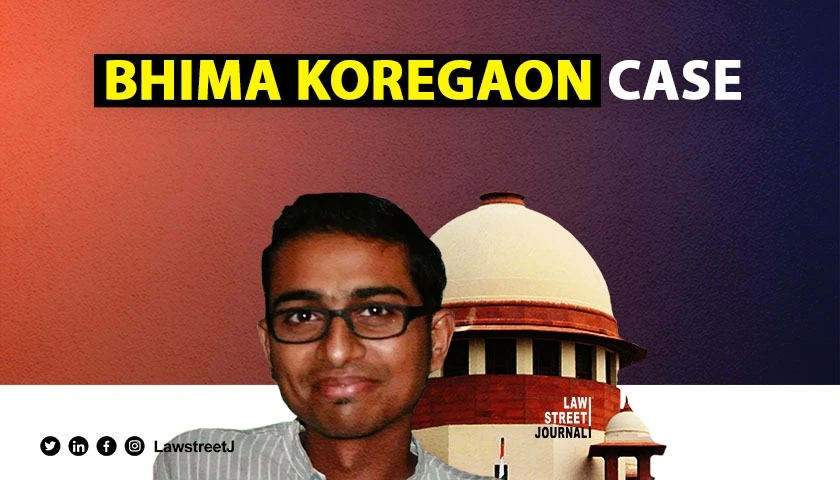NEW DELHI: The Supreme Court on Friday granted two weeks interim bail to activist Mahesh Raut, arrested in the Bhima Koregaon case to attend the rituals upon the death of his grandmother.
A bench of Justices Vikram Nath and S V N Bhatti allowed a plea by Raut by enlarging him between June 26 and July 9.
The court, however, directed Raut to surrender to the authorities/ NIA without fail on July 10.
The court also clarified that his release would be subject to the terms and conditions set by the Special NIA court.
The bench rejected the contention by the NIA's counsel that the last rites of the applicant's grandmother was already performed.
Advocate Aparna Bhat, appearing for Raut, submitted two rituals would be performed on June 29 and 30 and July 5 and 6.
In its order, the bench said, Considering the facts and circumstances of the case and the period of incarceration already undergone and the nature of request made by him, we are inclined to grant interim bail for a period of two weeks to the applicant which may commence from 26 June and end on 09 July."
The court, however, asked Raut to strictly follow rules and the conditions imposed on him. It also allowed the NIA to request the Special Court to impose stringent conditions upon the applicant.
Raut sought interim bail on the ground that he had to go to Gadchiroli to attend the ceremonies after the death of his grandmother.
The court had on June 14 asked the NIA to take instructions and file a reply on Raut's plea.
33-year-old Raut was arrested by the NIA in June 2018. He is at present lodged in Taloja prison, for his alleged involvement in the case.
The prosecution claimed provocative and inflammatory speeches were allegedly made at an event that was allegedly backed by banned terror outfit CPI (M), which later led to violence at Koregaon Bhima village near Pune in 2018. Raut along with many others were arrested for their alleged involvement in the case.
The Bombay High Court had on September 21, 2023 granted bail to Raut. But the NIA, after two days, moved the apex court, which stayed the High Court's order.

















